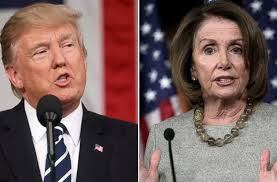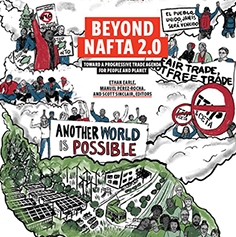NAFTA negotiations are to be resumed next week in Mexico in what Mexican chief negotiator, Kenneth Smith, said would be a ‘very difficult’ round due to the discussions to be had on some of the most controversial and complicated topics of the re-negotiation.
Amongst these issues is the investor-state dispute settlement (ISDS) mechanism which has generated much controversy amongst the people of the three countries along with international rejection during the Trans-Pacific Partnership (TPP) negotiations. While Mexico had no desire to eliminate ISDS, the United States Trade Representative, Robert Lighthizer, has practically made it a condition for continuing negotiations, and there are indications that Canada is willing to cede to the US’s ‘opt-in’ proposal or even its elimination from the trade agreement.
The energy industry has lobbied fiercely for the NAFTA re-negotiations to include ISDS as the mechanism has benefited the oil and gas industries immensely. According to a William Waren, senior trade analyst at Friends of the Earth, “Just about the biggest and most frequent plaintiffs are big oil companies.” Waren added that the annual profits at the largest multinational oil firms can be significantly larger that the economies of countries in the Global South in which they operate in, holding significant coercive leverage over their political and economic system. Since the privatization of Mexico’s oil and gas industry organized under the energy reform laws of 2014, multi-national corporations have been able to compete for contracts to exploit the country’s natural resources.
Oil and gas companies are terrified of the elimination of ISDS given that they would be subject to Mexico’s justice system as opposed to the largely biased ISDS mechanism. Tim Callahan, who heads the Mexican oil producer association’s NAFTA committee, claimed, “I don’t think any of us want to be the first to test in the Mexican courts how they’re going to rule on any disputes when it comes to oil.” Carlos Pascual, a former US ambassador to Mexico, adds that many of the biggest corporate investments in the Mexican energy industry occurred only after the government assured the industry that any threats to their investments could be appealed using NAFTA’s ISDS provisions.
It is not surprising that negotiators intend to finish negotiations before Mexican President Peña Nieto’s presidential term comes to an end in December, especially considering that the candidate currently leading the polls has been a fierce critic of the privatization of the Mexican state oil company, Pemex, and has insisted on having multi-national corporations engage the national justice system as opposed to international corporate-friendly bodies. The Mexican government is already preparing for a potential ISDS elimination by signing the International Centre for Settlement of Investment Disputes (ICSID) Convention, which if ratified by the Mexican Senate, will allow foreign investors to challenge the Mexican government through the ICSID dispute resolution system as opposed to local courts.
The elimination of ISDS is critical to the fight for environmental justice and the ability of governments to at least have the option of regulating and restricting the actions of the international oil industry through each country’s own justice system, which has more accountability to its people over ISDS arbitration panels composed by lawyers enmeshed in corporate influence and interests. Ending ISDS is an opportunity to end special legal protections for the companies that are directly responsible and benefiting from climate change and environmental disasters within North America, also setting an example for the world.
Let’s focus on creating enforceable and legally-binding protections for the environment and reduction of greenhouse gas emissions in our trade agreements instead.

